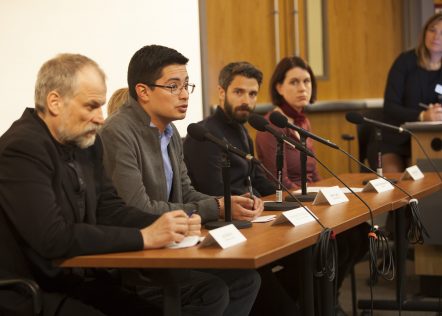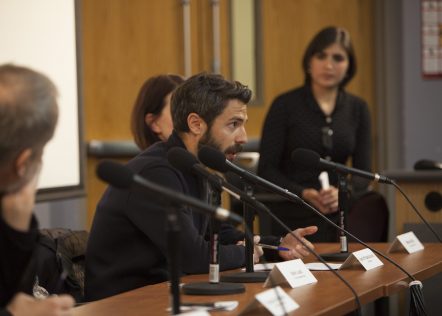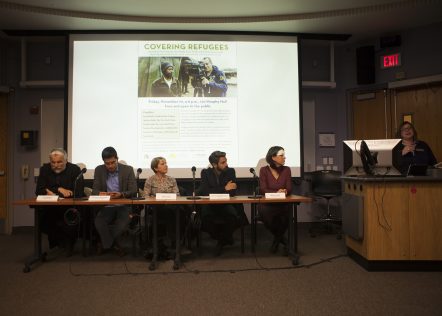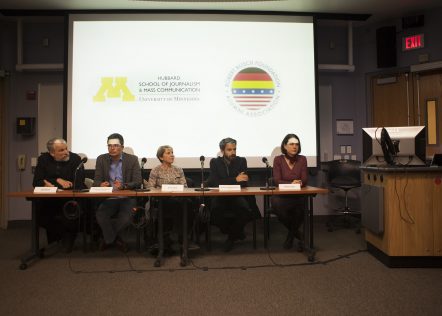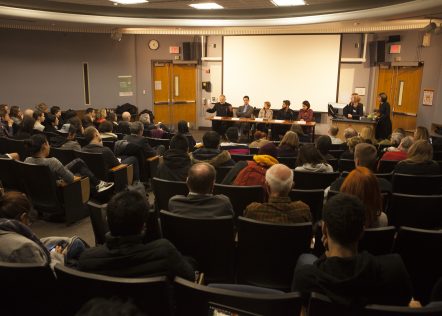More than a dozen journalists and academics from seven countries gathered for a weekend of presentations, conversation and reflection about media coverage and public discourses about refugee flows and integration into the European Union and the Americas.
The event, hosted by the University of Minnesota with support from a grant from the Deutscher Akademischer Austauschdienst as well as funds from the Robert Bosch Foundation Alumni Association, took place over three days in November from the 9th to the 11th at the University of Minnesota. It included discussions with a federal district judge, members of the Somali and Cambodian communities and experts on the topic of immigration and integration.
A public roundtable discussion co-moderated by organizer Giovanna Dell’Orto, associate professor at the University of Minnesota’s Hubbard School of Journalism and Mass Communication, and Robert Bosch Foundation alumna and journalist for the Arizona Daily Star Perla Trevizo, brought together about 100 members of the community and the university.
The panel of journalists talked about covering the refugee and migrant situation on both sides of the Atlantic, which included a lack of familiarity with what’s happening in the sending countries, dwindling resources and figuring out the right terminology to use when writing about such highly emotional and politicized topics.
The next day, each of the 19 participants gave a 20-minute presentation on their area of expertise, to include an overview of the borderlands and covering immigration in the Trump era to an analysis of the coverage of the refugee crisis in Europe. Trevizo also talked about her research on how the U.S. and German media cover migration conducted during her time in Germany as a Robert Bosch Fellow.
“From the hard facts to the humanitarian and security ramifications, few issues are more consequential, or more controversial, for journalists to cover than migration and refugee flows,” said Dell’Orto. “By bringing top reporters together across media platforms and continents, and in dialogue with scholars and practitioners, the conference aimed to strengthen the understanding of the real stories on the ground – and the story behind the stories – at a time when factual, objective journalism is a prime target in a dangerously polarized political environment.”
In attendance were journalists from The Associated Press, Kathimerini (Greece), El Periodico (Guatemala), Public Radio International, Süddeutsche Zeitung (Germany), Spiegel Online (Germany), and The New York Times, as well as academics from Aristotle University (Greece) and the universities of Arizona, California, Potsdam, and Vienna, and Germany’s Consul General in Chicago. The deputy managing director of the Expert Council of German Foundations on Integration and Migration, and Kate Linthicum, the Mexico correspondent for the L.A. Times, participated via Skype.
